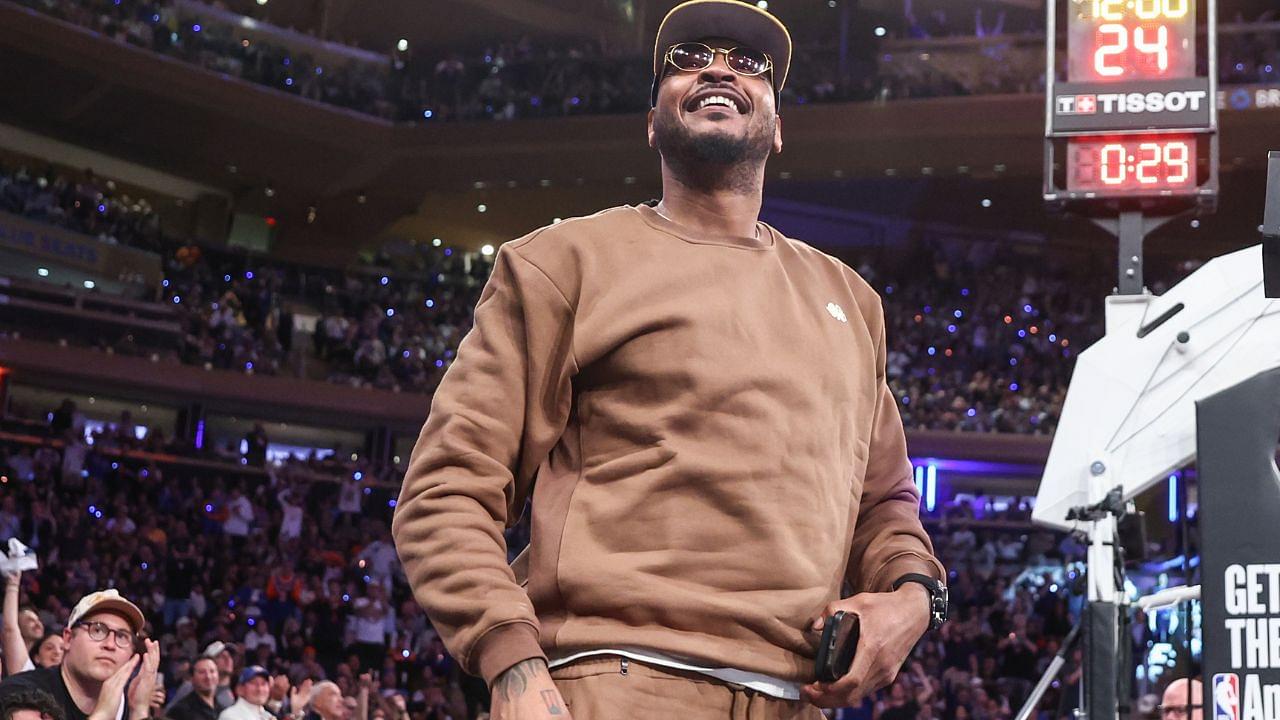College sports have undergone significant changes over the past few years. The ability for student-athletes to capitalize financially on their name, image and likeness has opened doors that were once completely shut. The NCAA now has to adapt to the precedent that they have set, which may come in the form of changing college basketball’s model from amateur to professional.
Advertisement
In the past, schools would allegedly entice players with monetary incentives to commit to their program and often under the table. One of the most infamous examples of the same came into the limelight in 2017 Rick Pitino and the Louisville Cardinals, with the team being stripped of their 2013 national championship.
Thankfully, that situation has seemingly changed with players now signing brand deals in high school. It has become essential for these teenage stars to have financial advisors. NBA legend Carmelo Anthony, who has seen this change in real time, has now reflected on how poor things used to be back then.
“We got penalized for having an agent,” Anthony revealed on the 7 PM in Brooklyn podcast.
The difference now is that college sports have breached the space where professional sports reside. The amount of money that these schools can offer these players is changing the entire landscape of many aspects, such as recruitment. Anthony believes he has a way to combat the frequent moves of key players on certain programs.
“Even if you’re the 10th player on the team, you’re making a couple hundred grand,” Anthony said.
“If I’m the 10th man on the team, I’m asking the school to give me a four-year deal for $1.2 million. When you do the math and realize, ‘Hold up, I’m going to have to pay somebody else this bread anyway, why not keep my guy?'” he argued.
The NCAA has already witnessed the implications of NIL within college basketball. Players are constantly using the transfer portal as a means for monetary gain, similar to the NBA’s free agency. The days of players spending four years at the same program are becoming more scarce by the year.
But unregulated, it can lead to financial misappropriation and corruption, which is why Anthony has proposed a solution that would allow the NCAA to monitor the frequency of transfers much more efficiently.
“You should be able to trade in college,” Anthony declared. “Just not in conference.”
If players wanted to be paid like professionals, they should be treated like professionals. There isn’t an issue with paying these athletes. After all, the NCAA is a multi-billion-dollar organization.
The issue comes with the dynamic and difficulties it causes to these programs and the integrity of the sport.
The NCAA is still learning how to navigate this massive change in its business model. They will certainly establish methods to fix the problems. Anthony’s advice could assist in their efforts.



